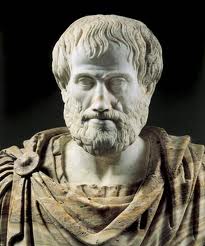Aristotle and Economics

He’s back!
The Nobel economist, Robert Shiller, has an interesting assessment of economics in yesterday’s New York Times. Shiller is one of three economists to win the prize this year and they all have different opinions on rationality and economics.
Prizewinner number one, Eugene Fama, is a rationalist. Rational people making rational economic decisions can explain all of economics. You have to look closely, but it’s all rational. Prizewinner number two, Lars Peter Hansen, occupies a middle position, emphasizing mathematical models but also noting the importance of “animal spirits, … rare events, and overconfidence….”
Shiller (aka prizewinner number three) notes that he is “the most willing … to incorporate ideas about nonrational or irrational behavior from other social sciences….” I’ve written a bit about nonrational economic behaviors – like loss avoidance bias. Additionally, I know that I don’t always make decisions solely for the purpose of maximizing my income. In other words, they’re nonrational in the strictest sense of economic rationality. So, I’m probably in Shiller’s camp.
Ultimately, however, I think the debate goes all the way back to Aristotle who made a clear distinction between:
- Things that can never be other than they are, and:
- Things that can be other than they are.
Physics is in Category One. The speed of light won’t change, no matter how much we discuss it. Thus, Aristotle proposes that analytics are the appropriate tools to study physics – and any other topic that falls in Category One. We analyze to understand, not to change things. By understanding, we may improve our ability to adapt to the world, but we’re not changing the world. (On related topic, I worry that physics envy is leading economists astray. The economists are being nonrational).
On the other hand, Aristotle would put political science in Category Two. The way we govern ourselves can be changed and improved. We need to analyze but we also need to come to a consensus. Aristotle codified rhetoric for this purpose. Rhetoric is the art and science of persuasion with the goal of reaching consensus on how we can improve the world around us. Rhetoric is not simply the art of winning an argument (that’s sophistry). Rhetoric helps us think clearly, reason together, and change what can be changed to build a better world.
I’ve been wondering recently whether economics fits into Category One or Two. If it’s Category One, all we can do is analyze it. We can describe economics but we can’t change it to build a better world – except in the sense that we can understand the world better. If economics is in Category Two, however, we could conceivably identify better ways to organize our economies and improve the world around us.
If economics is totally rational, then it seems to fit into Category One. We can only describe it. There’s no changing it (unless we can change human rationality, which seems improbable).
On the other hand, if economics has nonrational elements, then we could conceivably improve it. We could identify mechanisms that would help us balance rational and nonrational behaviors. As Shiller notes, he still advocates “a free market system, with innovations to make it work better.” I’m an optimist, so I’m hoping that economics fit naturally into Category Two. That’s why I’m lined up with Shiller (and Kahneman and others).
Aristotle has given us an interesting system to organize our thoughts. So what do you think? Does economics fit in Category One or Category Two?